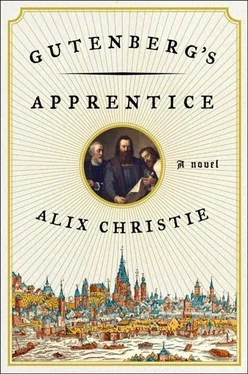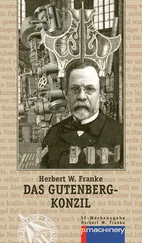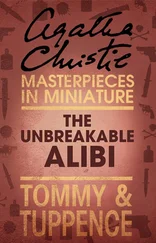All through the blazing day they rode, stopping just to water horses and pay tolls. At Sindlingen the brother of the Count of Nassau took his cut; at Hoechst the minions of Archbishop Dietrich did the same. Passing the courts of law for the archbishopric, Peter felt a sudden spurt of joy. How lucky he had been to have escaped the life of an ecclesiastic scribe! What freedom he now had! He tasted it entirely, the sheer unfettered sweetness of the road.
A cheer went up among them when at last the spire of St. Bartholomew’s scratched its point onto the darkening horizon. The convoy had to stop and wait its turn to squeeze beneath a mighty gate whose torches glittered in the water of the moat below. Once through, the horses pranced and rolled their eyes at a great mass of penned and milling beasts off to the left, and then they were in the whirling din of Frankfurt. Strains of music could be heard, the hum of many thousand men and horses; every light in the city had been lit and threw its honeyed halo toward the green and purple sky. They passed through narrow streets lined by the steep stepped gables of the finer homes, and one by one the wagons split off to the quarters that the guilds had hired. The house the Fusts and the Mainz goldsmiths took for every fair stood just behind the Römerberg, the city’s central square. Where Gutenberg was lodging no one knew.
The Frankfurters flung the whole city open twice a year: there were four hundred houses more or less within the inner wall, each packed to the rafters with guests and goods and traders from the farthest corners of the continent. Doubtless the master stayed among his peers, some Frankfurt Elders, Peter thought as they rode past the mouth of the great square. It hadn’t even started, but already Autumn Fair seemed louder and much larger than the times he’d been there as a boy. He felt excitement seize him as they skirted that great plaza: ablaze with light and sweet with roasting smells, the fulcrum of it all, where kings were made and traders prayed for their salvation twice a year.
Gutenberg had set their stall along the Mainzgasse, the lane assigned to dealers in fine manuscripts. He’d put them in among their competition like sheep among the wolves, thought Peter the next morning when Lorenz led him there. The master had secured a good spot in the arches of a house that faced the street. Thus did Frankfurt’s burghers turn their homes to storefronts: every ground floor now stood open to the passing throngs. The finest wares held pride of place up on the Römerberg: precious metals and armor and jewels and furs. The vast array of other goods fanned out to either side along the streets and alleys, spreading all the way down to the riverfront. Here, just before the wall that girded Frankfurt-on-the-Main, the buyers couldn’t help but pass among the booksellers who offered codices and single leaves and scrolls. Among the scribes and monks were stalls that sold materials to the trade, hides and quills and pigments, oils and papers.
The morning air thrummed densely all around him: the groan of hinges, thunderclap of shutters, thud of mallets prying covers off casks. Peter spread their crimson cloth and reached into the barrel Lorenz rolled toward him. Just one full Bible would be shown, split in two volumes, freshly bound; beside this they would spread a few loose quires. Genesis, and Psalms, the Gospel according to John: which books could better sway a devout heart — and purse? Fust had required them to lock up the copies they had brought for sale at Jakob’s stall beneath the Haus zum Römer. No thief could get within an arm’s length of the gold- and silversmiths, thanks to the sheriffs that the Frankfurt council posted. The master had delivered a first batch of his new printed letters of indulgence for sale as well. They’d floated at his feet and doubtless raised his spirits the whole way from Mainz to Frankfurt.
The man himself came loping as the bell struck half past six, unexpectedly resplendent in the lane. “No one has seen?” His eyes raked nearby vendors setting up their tables, and the rest behind them in the gloom. They hadn’t had the leisure, Peter said.
“Excellent.” The master flashed his wolfish grin. “Though you yourself look much the worse for wear.” He swiped off his cap and squeezed behind the stand. Peter took the velvet lump he thrust at him. Gutenberg wore the same — his only — suit, of dove gray with magenta slits.
“And you, I see”—Peter smiled—“combed your hair.”
The master winked and smoothed the grizzled shock. “My finest hour.” Suddenly it grew much brighter as the drays that blocked the light were banished from the lane. “By God, we’re here!” said Gutenberg, a sudden smile cracking his face before he shrugged off the cloak and rolled up his sleeves.
“You have no fear,” said Peter softly in his ear, “of the archbishop?” His stomach once again was tight with nerves. Gutenberg bent and jogged the quires. “I’ve paid my wages.” He threw a shrewd glance Peter’s way. “But all the same it pays to take precautions. I sent some pages to your cardinal”—he winked—“through our old friend the prior.”
Peter looked at those squared shoulders and raised head — so regal and so proud. “You what?” he whispered.
“Brack’s cousin is Cusanus’s man.” The master spoke so softly Peter had to crane to hear. Gutenberg rocked back and scoured the stand with his uncompromising eye. He turned those eyes on Peter, gold-flecked and shining. “The local priests report to Dietrich, but”—his canines gleamed—“a cardinal or two trump an archbishop.”
Peter sat back on the small, upended barrel. Incredible, the man was just incredible, he thought. He watched him wait; perhaps he prayed. The master’s free hand crept up, plucking as it always did at lips and beard. He looked here at the end as if he too had stepped out of the Pentateuch, his foreman thought: erect and dignified, though battered by his trials. His eyebrows bristled like cockscombs and his cheeks were tanned and taut as vellum. The hair that had been dark when they first met had gone a shade of granite.
Johann Gutenberg stood half in shadow, his chest thrust out, and waited for the world to take some notice. The lane was filling now with friars seeking parchment, painters seeking oils and colors, scribes for pens and reeds, and then their targets: richer merchants down to eye the finished books from Basel or Louvain.
“Twelve hundred pages,” he sang out, “on Turin rag, or finest vellum. The Book of Books, as fine as you will see, and for a fraction of the cost to have it copied.” He rubbed his hands with huge enjoyment as first one, then two, then half a dozen gathered and began to crane.
The looks were always just the same: perplexity, a frown, hands lifting up the hide, the paper sheet, palpation with a fingertip. The questions — startled — as they set it down. “What manner of writing, then, is this?”
“Which instrument has punched this hide?”
“Who wrote these lines?”
The wonder turned to doubt, suspicion in their eyes. Yet Gutenberg appeared to never weary of responding. “It is a new technique,” he’d say, “of making letters.” Imprimere , or impressum , he began to add, when news of it appeared to spread. By ten o’clock there was a steady stream not just of traders but of clergy from across the empire, habits of all shades and kinds, and then the gawkers and the children and the fools, converging like a tide.
Their fellow dealers hardly noticed them at first, except to whisper and exchange brief looks. The sight of Gutenberg all decked for court and braying seemed to cause them more amusement than alarm. They had their hands full in the first few hours, when sharper buyers tended to swoop in. Lauber’s Alsace workshop did brisk business in their knightly tales; another corner was reserved for routine clerking work, with a long, stolid queue. Peter didn’t see the Brothers of the Common Life, until one member of that scribal confraternity came to see what all the fuss was for. Peter watched him trace a finger over the tiny gullies only scribes would ever think to feel; he saw his eyes involuntarily go wide, then narrow; he knew exactly what the man must feel.
Читать дальше












